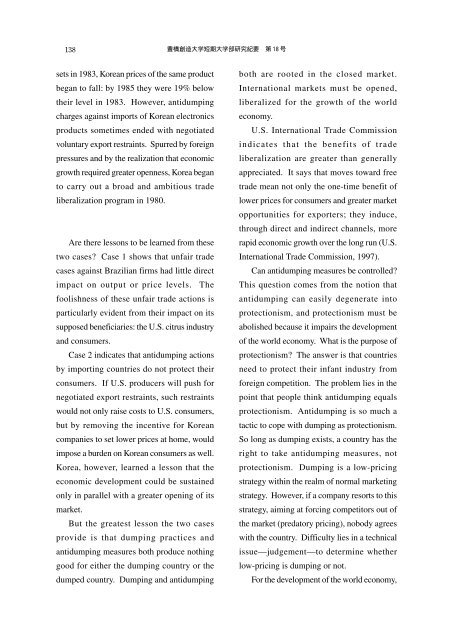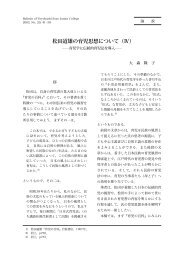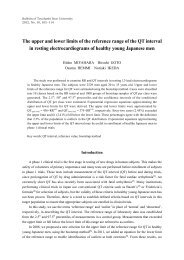A Critical Evaluation of Dumping IN INTERNATIONAL TRADE
A Critical Evaluation of Dumping IN INTERNATIONAL TRADE
A Critical Evaluation of Dumping IN INTERNATIONAL TRADE
Create successful ePaper yourself
Turn your PDF publications into a flip-book with our unique Google optimized e-Paper software.
138<br />
<br />
sets in 1983, Korean prices <strong>of</strong> the same product<br />
both are rooted in the closed market.<br />
began to fall: by 1985 they were 19% below<br />
their level in 1983. However, antidumping<br />
charges against imports <strong>of</strong> Korean electronics<br />
International markets must be opened,<br />
liberalized for the growth <strong>of</strong> the world<br />
economy.<br />
products sometimes ended with negotiated<br />
voluntary export restraints. Spurred by foreign<br />
pressures and by the realization that economic<br />
U.S. International Trade Commission<br />
indicates that the benefits <strong>of</strong> trade<br />
liberalization are greater than generally<br />
growth required greater openness, Korea began<br />
to carry out a broad and ambitious trade<br />
liberalization program in 1980.<br />
appreciated. It says that moves toward free<br />
trade mean not only the one-time benefit <strong>of</strong><br />
lower prices for consumers and greater market<br />
opportunities for exporters; they induce,<br />
through direct and indirect channels, more<br />
Are there lessons to be learned from these<br />
rapid economic growth over the long run (U.S.<br />
two cases? Case 1 shows that unfair trade<br />
cases against Brazilian firms had little direct<br />
impact on output or price levels. The<br />
International Trade Commission, 1997).<br />
Can antidumping measures be controlled?<br />
This question comes from the notion that<br />
<br />
foolishness <strong>of</strong> these unfair trade actions is<br />
particularly evident from their impact on its<br />
supposed beneficiaries: the U.S. citrus industry<br />
antidumping can easily degenerate into<br />
protectionism, and protectionism must be<br />
abolished because it impairs the development<br />
<br />
and consumers.<br />
Case 2 indicates that antidumping actions<br />
by importing countries do not protect their<br />
<strong>of</strong> the world economy. What is the purpose <strong>of</strong><br />
protectionism? The answer is that countries<br />
need to protect their infant industry from<br />
consumers. If U.S. producers will push for<br />
negotiated export restraints, such restraints<br />
would not only raise costs to U.S. consumers,<br />
foreign competition. The problem lies in the<br />
point that people think antidumping equals<br />
protectionism. Antidumping is so much a<br />
but by removing the incentive for Korean<br />
companies to set lower prices at home, would<br />
impose a burden on Korean consumers as well.<br />
tactic to cope with dumping as protectionism.<br />
So long as dumping exists, a country has the<br />
right to take antidumping measures, not<br />
Korea, however, learned a lesson that the<br />
economic development could be sustained<br />
only in parallel with a greater opening <strong>of</strong> its<br />
protectionism. <strong>Dumping</strong> is a low-pricing<br />
strategy within the realm <strong>of</strong> normal marketing<br />
strategy. However, if a company resorts to this<br />
market.<br />
But the greatest lesson the two cases<br />
provide is that dumping practices and<br />
strategy, aiming at forcing competitors out <strong>of</strong><br />
the market (predatory pricing), nobody agrees<br />
with the country. Difficulty lies in a technical<br />
antidumping measures both produce nothing<br />
good for either the dumping country or the<br />
dumped country. <strong>Dumping</strong> and antidumping<br />
issue—judgement—to determine whether<br />
low-pricing is dumping or not.<br />
For the development <strong>of</strong> the world economy,




